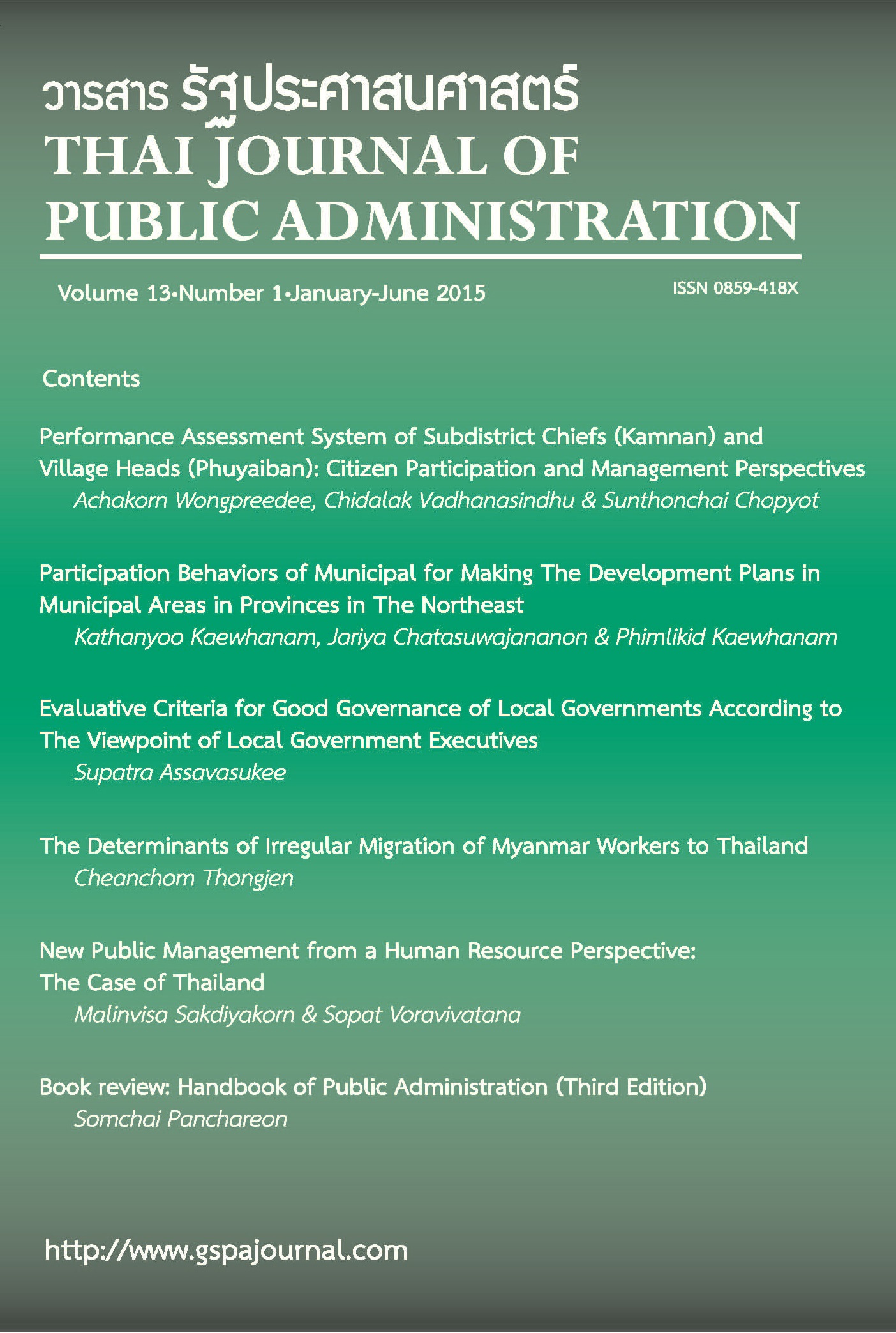Evaluative Criteria for Good Governance of Local Governments According to the Viewpoint of Local Government Executives
Keywords:
Evaluative criteria, good governance, principles of good governance, local governments, executives, bottom-up viewpoints, theory-based approachAbstract
The Royal Decree on Criteria and Procedures for Good Governance B.E. 2546 (A.D. 2003) stipulates that “the performance of every agency must be evaluated” (Pairuchvet, 2010:12). According to the standard approach, local governments are evaluated by the Department of Local Administration (DLA), the Office of the Auditor General (OAG), and the National Anti-Corruption Commission (NACC), with a set of criteria that target 7 goals. Whether this top-down approach is sufficient and satisfactory remains debatable.
An opposite approach is the bottom-up approach, where the criterion of participation is one of the principles of good governance of local governments. Furthermore, the criteria center on six principles set forth in the aforementioned Royal Decree: 1) rule of law; 2) ethics; 3) transparency; 4) participation; 5) accountability; and 6) cost effectiveness.
This study focus on the evaluative criteria for good governance of local governments according to the viewpoint of local government executives. The author attempts to establish theory-based evaluative criteria where a theoretical linkage to each criterion is discussed. Three evaluative criteria are obtained for each principle of good governance, making a total of 18 criteria. The study also employs Likert-type rating scales for each criterion in order to ascertain the level of importance. Two sets of survey are conducted, one to gain for “standard” rating scales and the other “actual” rating scales, forcomparison purposes.



